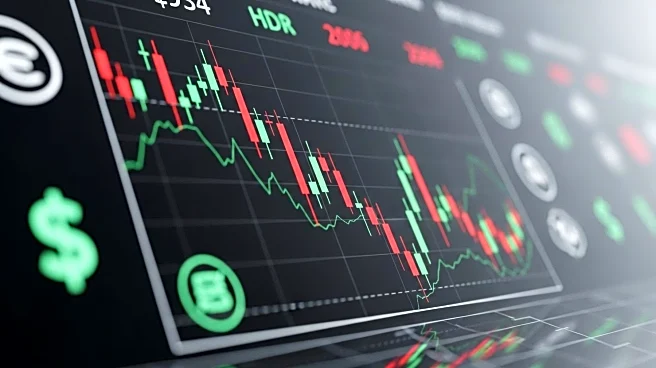What's Happening?
The Dow Jones Industrial Average experienced a significant decline on Friday following President Trump's announcement of potential new tariffs on China. This development is part of ongoing trade tensions between the United States and China, which have been affecting global markets. CBS News MoneyWatch correspondent Kelly O'Grady reported on the situation, highlighting the impact of these tensions on investor confidence and market stability. The threat of tariffs is seen as a strategic move by President Trump to pressure China into negotiating trade terms more favorable to the U.S., but it has also led to uncertainty in financial markets.
Why It's Important?
The potential imposition of new tariffs by President Trump could have far-reaching consequences for the U.S. economy and global trade relations. Tariffs generally lead to increased costs for consumers and businesses, potentially slowing economic growth. The market sell-off reflects investor concerns about the stability of international trade and the potential for a prolonged economic conflict between two of the world's largest economies. Industries reliant on international supply chains, such as technology and manufacturing, may face disruptions, while consumers could see higher prices on goods. The situation underscores the delicate balance of trade negotiations and their impact on economic stakeholders.
What's Next?
If President Trump proceeds with the tariffs, it is likely to prompt a response from China, potentially escalating the trade conflict further. Businesses and trade groups may lobby for negotiations to prevent further economic disruption. The U.S. government may also face pressure from domestic industries affected by the tariffs to seek alternative solutions. Monitoring the situation closely, financial markets will react to any developments in trade talks, influencing investment strategies and economic forecasts.










